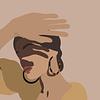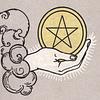You need to sign in or sign up before continuing.
Take a photo of a barcode or cover
Dentro de: "Mujeres y maravillas" (The New Women of Wonder)
Relato dentro del ciclo Hainish y narra la historia de un grupo de cientificos que es enviado a un planeta lejano para explorar y buscar nueva vida alienigena. Realizarán un viaje de 256 años y estarán incomunicados y sin saber nada de su mundo durante siglos y siglos. El elemento desestabilizador en este grupo cerrado, es la presencia en ella de Olsen, un émpata, un humano que sufre una enfermedad inicialmente confundida con el autismo, pero que es en realidad un exceso de empatía.
Este relato le sirve a Ursula Le Guin para explorar los elementos del miedo y crea una atmósfera en torno a él debido a la reacción de Olsen a este planeta.
Relato dentro del ciclo Hainish y narra la historia de un grupo de cientificos que es enviado a un planeta lejano para explorar y buscar nueva vida alienigena. Realizarán un viaje de 256 años y estarán incomunicados y sin saber nada de su mundo durante siglos y siglos. El elemento desestabilizador en este grupo cerrado, es la presencia en ella de Olsen, un émpata, un humano que sufre una enfermedad inicialmente confundida con el autismo, pero que es en realidad un exceso de empatía.
Este relato le sirve a Ursula Le Guin para explorar los elementos del miedo y crea una atmósfera en torno a él debido a la reacción de Olsen a este planeta.
- op vakantie - (luisterboek)
ZO moooooi ik wil meerrrrrr
ZO moooooi ik wil meerrrrrr
emotional
mysterious
medium-paced
Plot or Character Driven:
Plot
Strong character development:
No
Loveable characters:
No
Diverse cast of characters:
Yes
Flaws of characters a main focus:
Yes
We all have forests in our minds. Forests unexplored, unending. Each of us gets lost in the forests, every night, alone.
- from the introduction to the first edition of 'Vaster than Empires and More Slow'
This story represents a really interesting moment in UKLG's writing career. This is one of her earlier works, first published in 1971, and it explores some themes that will continually pop up in her work in the future. In my opinion, your best experience of reading this would be to read her novella The Word for World is Forest (which was published a year later in 1972) immediately afterwards. These two books explore different sides of the themes of variant forms of consciousness and space colonialism. This has to be one of the OG extraterrestrial plant horror stories to actually explore the implications of plant consciousness. Definitely required reading (paired with TWfWiF) for anyone interested in forest sci-fi or UKLG's development of the main themes of her Hainish world.
Without giving too much away, the final thing I want to discuss is her depiction of Osden, an autistic character. I've seen some reviewers react negatively to Osden, which I can definitely respect, but I'd like to offer a touch of nuance. She describes him as someone who has been "cured" from "infantile autism" which are understandably the kinds of regressive buzzwords that many autistic people recoil from today. In the 21st century, the social attitude to autism is undergoing a dramatic change with groups like the Autistic Self-Advocacy Network framing autism in terms of the disability rights movement, rather than as a disease to be cured. 50 years ago, when this book was written, the social attitude to autism was solidly situated in treating autism as a disease and so, I actually think that Osden is a really progressively portrayal of an autistic character (for the time). If you can be patient with her extremely outdated language, I actually think that Osden might be one of the earliest humanizing portrayals of an autistic character in the science fiction genre. It's not perfect, but this story is definitely required reading for anyone studying the history of autistic characters in literature.
I actually think that the main theme of this story is neurodivergence, the clashes that come when very different kinds of consciousness encounter each other, and the ultimate subjectivity of an experience depending on our background.
Spoiler
Although Osden is described as "cured" of autism early in the story, it becomes clear by the end that what has actually happened is that Osden has been taught a way of coping with his neurodivergence by developing his skills of empathy, at a great sacrifice to his own mental health and sense of self. To me, this rings eerily similarly to the way autistic adults today describe their experiences with masking in social situations and behavioral interventions to "cure" autism.The other, more obvious element, of the hive mind of the world-wide forest, also plays into this theme. Although the majority of this story is steeped in the creeping, brooding atmosphere of World 4470, this is really the story of two different forms of consciousness coming into contact with each other for the first time. The difference between the individual minds of the human crew and the group mind of World 4470 is essentially one of neurodivergence, as well. What we find, in the conclusion of the story, is a horrifying end from the perspective of the human crew, and a peaceful resolution for Osden and World 4470, depicting the way that one seemingly straightforward event can be perceived so differently depending on the biases of the mind experiencing it.
adventurous
emotional
mysterious
fast-paced
adventurous
emotional
mysterious
fast-paced
Plot or Character Driven:
A mix
Strong character development:
Yes
Loveable characters:
Complicated
Diverse cast of characters:
Yes
Flaws of characters a main focus:
Yes
Beautifully written, Leguin's descriptions are always evocative in the best way, able to link the vastness of nature with the most intimate and human experiences. The themes of self-hood and consciousness are explored briefly but interestingly. The characters and their relationships, despite only existing for a handful of pages are realistic and well developed enough, as is the world building.
This story is extremely well written and intriguing. The characters are fairly diverse and the concept of what is life, how do we define consciousness is present and interesting. A quick read, but excellent.
Brilliant. Ecologically profound and deeply moving. Highly recommended.
Interesting. This was my first read from Ursula K. Le Guin and I found the writing and story engaging. the ending was a bit odd, but it was a good novella. I look forward to reading more from this author.




